Cory Golob, KU1U, writes:
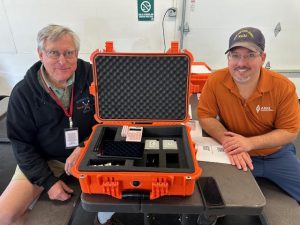
Maine is adopting change and getting prepared for when the ARRL VEC moves to exam tools by 2026. A group of Volunteer Examiners moved toward this goal at the Windsor Maine hamfest on September 7th.
We held a test session for walk-ins where four applicants took their test using tablets and the examtools interface. Ahead of the session, the examiners signed up for an examtools account and learned the process the day of the hamfest.
All applicants who arrived for their exam had already signed up for an FRN, which helped expedite the process since it is required for testing. Next, the applicants registered to take an exam, which was created in the system for the Windsor Hamfest. Once they filled out the form online, they were placed in the session queue. The applicant was then given a Kindle Fire tablet with examtools on it to use for the exam. After verifying their ID, they were asked to verify their information listed from when they registered (most importantly their email address). The next step was to enter the session identifier and pin number. After clicking on join test session, examiners were briefed on “action items” and how to complete them. Examiners must complete an action item to admit an applicant into the exam, provide them with an exam, and grade an exam. Each action requires the examiner to enter their password, validating it is them performing the action.
The applicant navigates a continuous webpage on the tablet with 35 (or 50) questions. They select their multiple choice answer and continue on to the next question. If they skip a question, an orange dot with the question number populates in the upper left hand corner of the screen. The applicant can click on the dot to be brought to the missed question instead of scrolling back to it. Once they are ready for grading, they click on the “grade exam” button. The VE will perform the action item and it scores immediately. The applicant then has a chance to take the next element if they would like or they can finish by signing their documentation on the tablet.
Once all of the examiners are in agreement, they electronically sign the CSCE which is then emailed to the applicant. They are marked complete by the coordinator and when all people have finished testing, the session is finalized, the two files for the VEC are downloaded and submitted. It is quite the streamlined process.
Additionally, examiners can watch the progress of the applicant as they are taking their test; A blue line progresses as an applicant answers questions. This new process was well received by the examiners and they went from being timid at first to being very excited to operate this way during the next exam session.
A big thank you to all of examiners and observers who showed up at the Windsor Hamfest: Joe Devonshire, AB1YO; Peter Bither, AI1O; Karl Richards, K1KSR; Gabriel Zacchai, KC1OJR; Dustin Hinds, N1HN; Michael Courtenay, W1MLC; John Oakes, WC1G; Paul Leonard, KE6PIJ; and Martin Brown, KC1PKQ. A special thank you to Stephen Hutchings, WM7X, for mentoring and helping us all, especially with the behind-the-scenes work and Robert Latlippe, NC1RL, for the use of the testing kit which contained the tablets, laptop, and calculators. We appreciate Maine Section Manager Phil Duggan, N1EP, as well as New England Division Director Fred Kemmerer, AB1OC, and Assistant New England Director Anita Kemmerer, AB1QB, stopping by to witness this event.
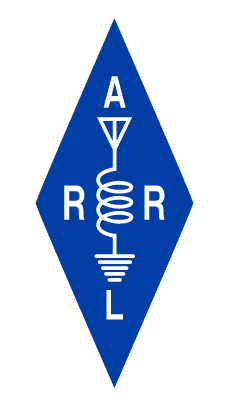
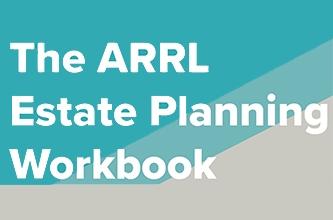
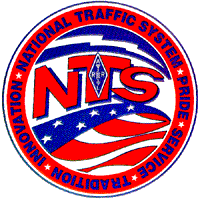 Interested in NTS and Traffic Handling? Join us Monday, October 14 at 7:00 PM via Zoom. This training will incorporate videos and open discussion to get you started in an exciting aspect of the hobby that’s been around for over 100 years!
Interested in NTS and Traffic Handling? Join us Monday, October 14 at 7:00 PM via Zoom. This training will incorporate videos and open discussion to get you started in an exciting aspect of the hobby that’s been around for over 100 years!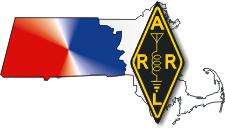 The September 2024 Western MA Section Newsletter is now available at
The September 2024 Western MA Section Newsletter is now available at  CNHARC President Rick Zach, KK1RZ, writes:
CNHARC President Rick Zach, KK1RZ, writes: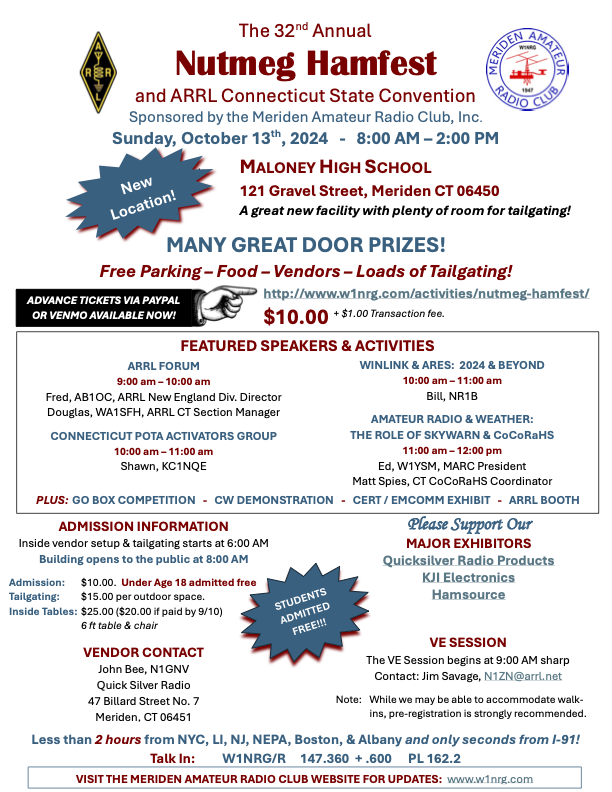
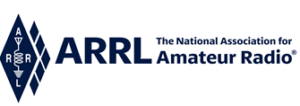 I would like to invite you to a
I would like to invite you to a